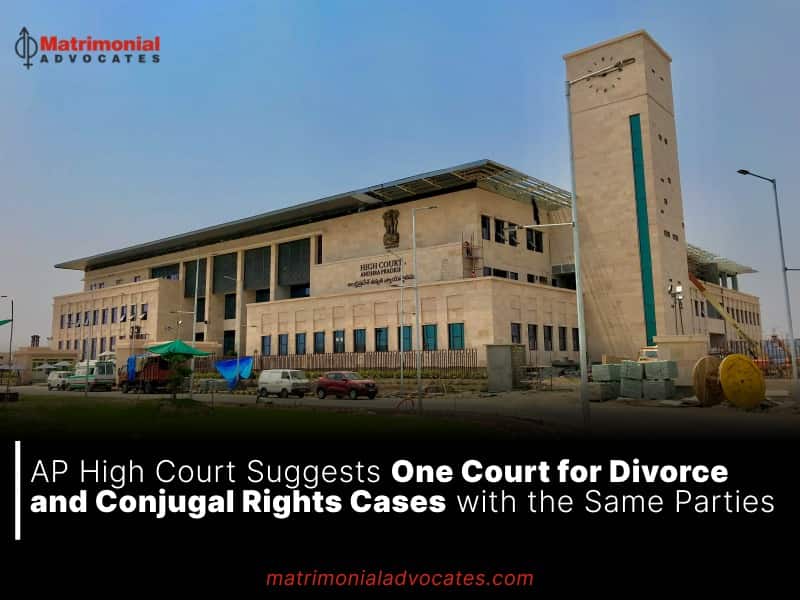
The Andhra Pradesh High Court has rendered its consent to the transfer of a matrimonial case initiated by the husband from one jurisdictional district court to another. The primary motivation for this transfer petition is to preclude the prospect of incongruent legal determinations in cases featuring the same litigants and intersecting subject matter.
Pursuant to Section 24 of the Civil Procedure Code, the petitioner-wife invoked the legal mechanism to solicit the relocation of the husband’s divorce case, initially instituted in the Senior Civil Judge Court of Razole in East Godavari District, to the jurisdiction of the court situated in Tadepalligudem, West Godavari District. The crux of this entreaty is her existing domicile at her parental residence in Tadepalligudem, which stands approximately 75 kilometers apart from the original court’s locale.
Furthermore, the petitioner-wife apprised the court of her lodging a formal complaint against her husband and his kith and kin, encompassing allegations under Section 498A of the Indian Penal Code and Sections 3 and 4 of the Dowry Prohibition Act. These legal actions were instigated at the Tadepalligudem Town Police Station. Concurrently, she initiated legal proceedings in her current place of residence, specifically filing a petition for the restitution of conjugal rights before the Senior Civil Judge Court in Tadepalligudem.
The nuptial alliance between the petitioner-wife and the respondent-husband was solemnized on April 12, 2017, within a function hall located in Tadepalligudem. Subsequently, discord in their marital relationship prompted the husband to institute a divorce petition, invoking the grounds of cruelty as per Section 13(1)(ia) of the Hindu Marriage Act, before the court in Razole. In response, the wife submitted a petition for the restitution of conjugal rights, in compliance with Section 9 of the Hindu Marriage Act, to the court in Tadepalligudem. Simultaneously, she initiated legal action by filing a First Information Report (FIR) against her husband and his family members, alleging offenses related to dowry harassment, within her native jurisdiction.
Justice Bandaru Syamsunder observed that when the husband filed petition seeking for divorce and the wife filed petition for restitution of conjugal rights both the petitions have to be disposed of by the same court to avoid conflicting decisions as per the ratio laid down by the Hon’ble Apex Court in NCV Aishwarya v. AS Saravana Karthik (2022): “when two or more proceedings are pending in different Courts between the same parties which raise common question of fact and law, and when the decisions in the cases are interdependent, it is desirable that they should be tried together by the same Judge so as to avoid multiplicity in trial of the same issues and conflict of decisions”.
In the current situation, the husband’s failure to contest the wife’s claims by not submitting a counter affidavit was a significant factor. Moreover, customary practice in matrimonial proceedings gives precedence to the wife’s convenience. As a result, the court favored and granted approval to the Transfer Civil Miscellaneous Petition.





